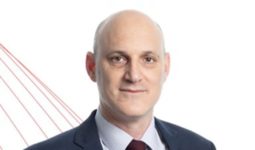This episode is hosted by Robin Lööf and discusses the independence of prosecutions and prosecutors in England and Wales. Taking part in the conversation are:
- Nick Vamos: a Partner at Peters & Peters and the former Head of Special Crime at the Crown Prosecution Service (CPS), overseeing its most complex casework including corporate manslaughter, election fraud and police corruption. During his seventeen years at the CPS, Nick also held three of the most senior international prosecution posts: Head of Extradition; Head of the UK Central Authority for Mutual Legal Assistance; and liaison prosecutor in Washington DC.
- Miranda Ching: a white-collar crime lawyer at Kobre & Kim where she advises individuals and corporates in cross-border cases. Before joining the firm in 2021, Miranda was a case controller and prosecutor at the Serious Fraud Office where she was responsible for the investigation and prosecution of multiple fraud and corruption cases.
- Richard Lissack QC: Richard is one of the country’s most experienced practitioners in the fields of Corporate Crime, Financial Services Regulation, Commercial Fraud and Health and Safety. Richard has been involved in many of the leading cases in these fields in the past three decades. By way of example, he led the successful defence of Barclays Bank against the SFO’s allegations of fraud in relation to its Qatar fund-raising and was also instructed in the JP Morgan London Whale litigation. He joins this discussion fresh from a 14-week trial at Southwark Crown Court resulting in the acquittal of his client, a former CEO accused of misleading the market in a prosecution brought by the Financial Conduct Authority.
The discussion in this episode arises out of a series of recent events, including the SFO continuing to fight what appears to be a constant battle to justify its own existence, the unceremonious ousting of the Chief Constable of the Metropolitan Police by the Mayor of London, a lack of investigation from law enforcement in relation to various scandals involving alleged serious misconduct by politicians, and a sustained trend of individuals and entities making use of the residual right to bring a private prosecution. These events raise questions as to how independent those responsible for investigating alleged criminality and bringing criminal charges before our courts really are from political or other external considerations.
The speakers also touch upon the status of prosecutors, their independence in deciding whether to open a criminal investigation or prosecution, and whether reform is needed.
For more information about our commercial crime practice, please see here.






